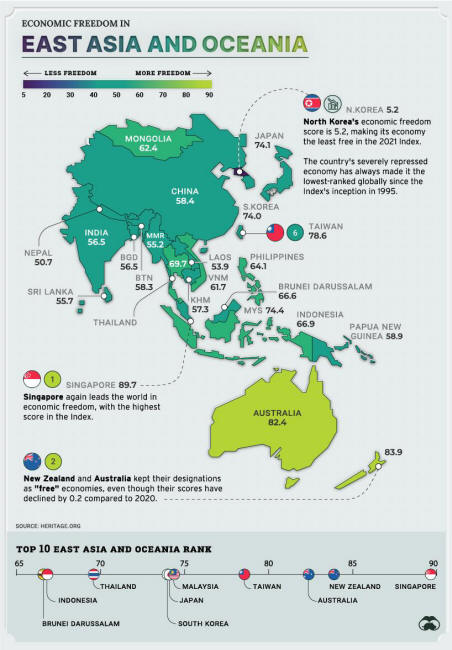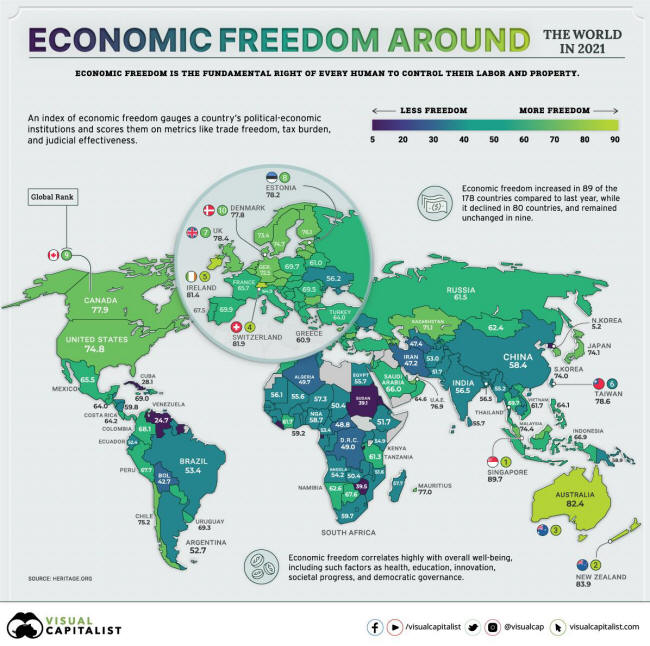Americas
Even though the
U.S. and Canada continue to be some of the most economically
free countries globally, some markers are
suffering.
The regional
average unemployment rate has risen to 6.9%,
and inflation (outside of Venezuela) has increased to 5.2%.
The region's
average level of public debt - already the highest globally -
rose to 85.2% of its GDP during the past year.
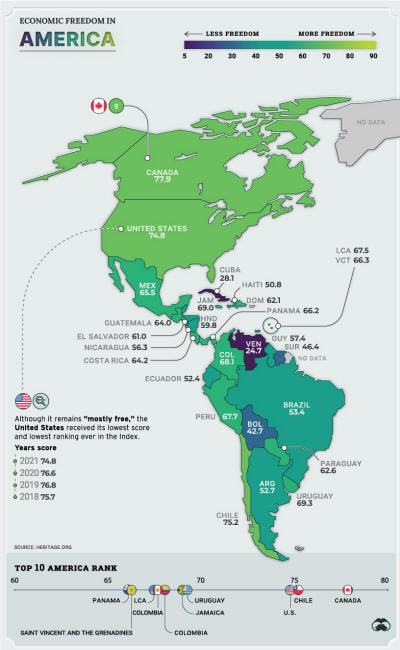
Across many
Latin American countries, widespread
corruption and weak protection of property rights
have aggravated regulatory inefficiency and monetary
instability.
For example,
Argentina's Peronist government has recently fixed the price of 1,432
products as a response to a 3.5% price rise in
September, the equivalent to a 53% increase if annualized.
Europe
More than half
of the world's 38 freest countries (with overall scores above
70) are in Europe.
This is due to
the region's relatively extensive and long-established
free-market institutions, the robust rule of law, and
exceptionally strong investment freedom.
However, Europe
still struggles with a variety of policy barriers to vigorous
economic expansion.
This includes
overly protective and costly labor regulations, which was one of
the major reasons why the UK voted to leave the EU.
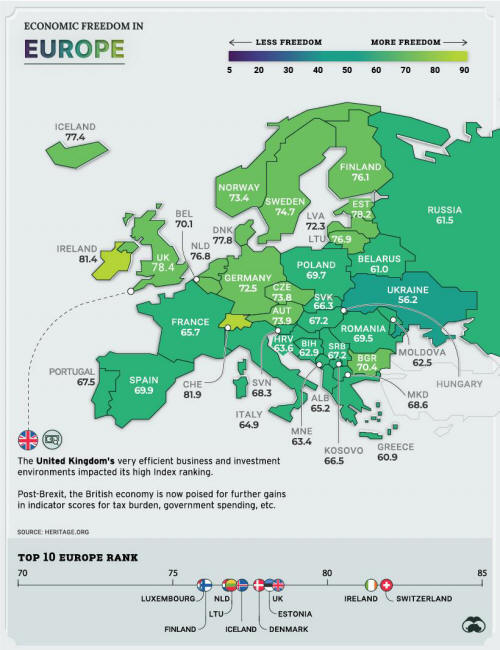
Brexit has since had a major impact on the region.
Even a year
later, official UK figures showed a record
fall in trade with the EU in January 2021, as the
economy struggled with post-Brexit rules and the 'pandemic'.
Africa
Dictatorships,
corruption, and conflict have historically kept African nations
as some of the most economically
repressed in the world.
While larger
and more prosperous African nations struggle to advance economic
freedom, some smaller countries are becoming the beacon of hope
for the continent.
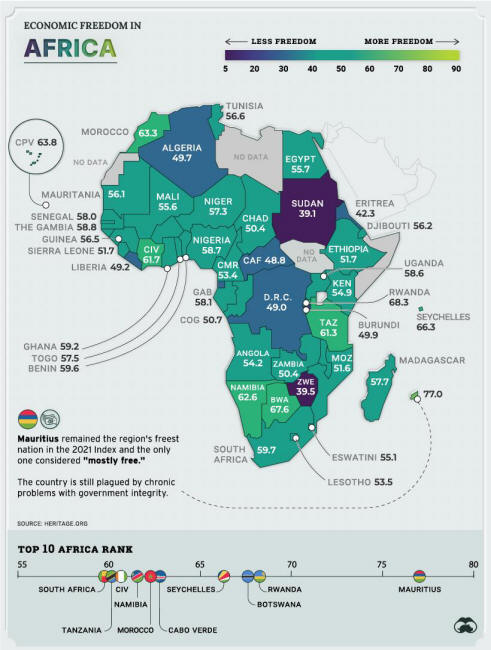
Mauritius (rank
11), Seychelles (43) and Botswana (45) were the top African
countries, offering the most robust policies and institutions
supporting economic self-sufficiency.
From property
rights to financial freedom, small African countries are racing
ahead of the continent's largest in advancing
economic autonomy as they look to build business
opportunities for their citizens.
Middle
East and Central Asia
When Israel,
the UAE, and Bahrain signed the
Abraham Accords last year,
there was a sense of a new
paradigm emerging in a region with a long history of
strife.
A year into the
signing of this resolution, the effects have been
promising.
There have been
bilateral initiatives within the private sector and civil
society leading to increasing economic and political stability
in the region.
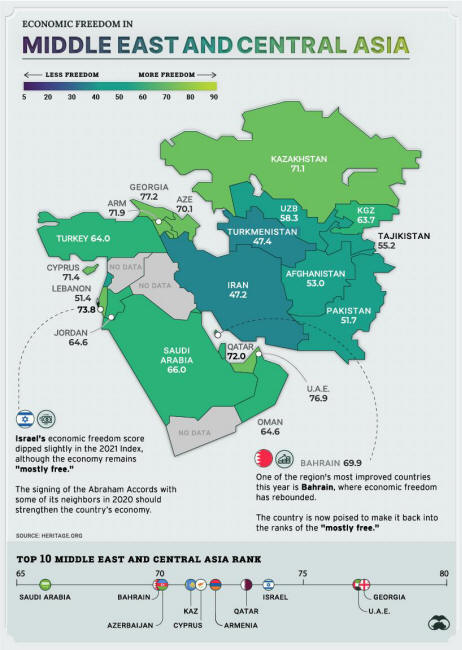
Central Asian
countries once part of the Soviet Union have recently starting
integrating more directly with the world economy, primarily
through natural resource exports.
In total,
natural resources account for about 65%
of exports in Kyrgyzstan, Tajikistan, and Uzbekistan,
and more than 90% in Kazakhstan and
Turkmenistan.
Despite this
progress, these countries have a long way to go in terms of
economic freedom.
Uzbekistan
(108), Turkmenistan (167) and Tajikistan (134) are still some of
the lowest-ranked countries in the world.
East
Asia and Oceania
Despite massive
populations and strong economies, countries like
China and India remain mostly
unfree economies.
The modest
improvements in scores over the last few years have been through
gains in property rights, judicial effectiveness, and business
freedom indicators.
Nearby,
Singapore's economy has been ranked the freest in the world for
the second year in a row.
Singapore
remains the only country in the world that is considered economically
free in every index category.
